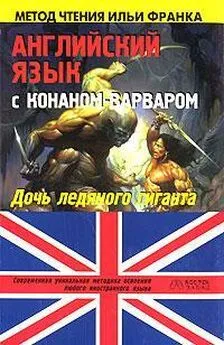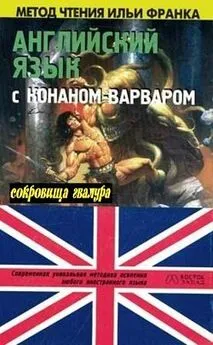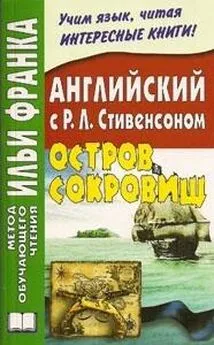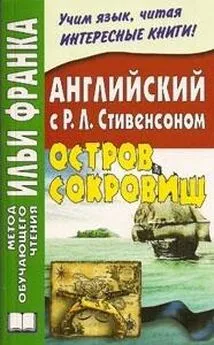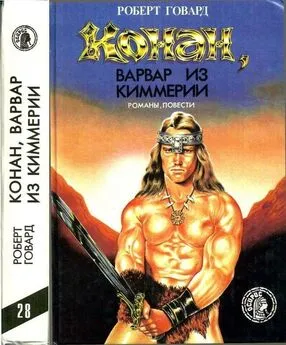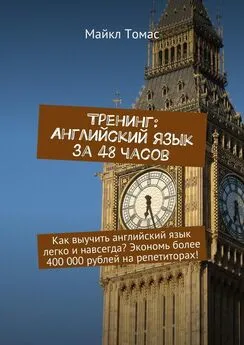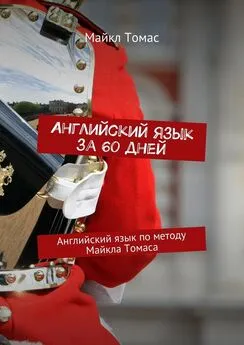Роберт Говард - Английский язык с Конаном-варваром
- Название:Английский язык с Конаном-варваром
- Автор:
- Жанр:
- Издательство:АСТ, Восток-Запад
- Год:2007
- Город:Москва
- ISBN:5-17-042032-3, 5-478-00503-7
- Рейтинг:
- Избранное:Добавить в избранное
-
Отзывы:
-
Ваша оценка:
Роберт Говард - Английский язык с Конаном-варваром краткое содержание
В книге предлагается произведения Роберта Е. Говарда, адаптированные (без упрощения текста оригинала) по методу Ильи Франка. Уникальность метода заключается в том, что запоминание слов и выражений происходит за счет их повторяемости, без заучивания и необходимости использовать словарь. Пособие способствует эффективному освоению языка, может служить дополнением к учебной программе. Предназначено для студентов, для изучающих английский язык самостоятельно, а также для всех интересующихся английской культурой.
Метод чтения Ильи Франка
Содержание:
Дочь ледяного великана
Проклятие монолита
Замок ужаса
За Черной рекой
Тени Замбулы
Английский язык с Конаном-варваром - читать онлайн бесплатно полную версию (весь текст целиком)
Интервал:
Закладка:
Balthus had never dreamed of such a spring (Балтус никогда /не/ видел /даже во сне/ такого прыжка; to dream of — мечтать, грезить, видеть во сне ), such a hurtling of incarnated destruction embodied in that giant bulk of iron thews and ripping talons (такого броска олицетворенного разрушения, воплощенного в этом гигантском теле из железных мускулов и разрывающих когтей). Full on the woodsman's breast it struck (он ударил прямо на = в грудь лесного жителя), and the stake splintered and snapped at the base (и столб треснул и отломился у основания), crashing to the earth under the impact (рухнув на землю под ударом; to strike — ударить, атаковать, заколоть ). Then the saber-tooth was gliding toward the gate (затем саблезубый заскользил к воротам), half dragging, half carrying a hideous crimson hulk that only faintly resembled a man (наполовину волоча, наполовину неся отвратительные кровавые останки /того/, что лишь едва напоминало человека). Balthus glared almost paralyzed, his brain refusing to credit what his eyes had seen (Балтус смотрел почти парализованный, его мозг отказывался верить /тому/, что видели его глаза).
tooth [tu: Ɵ], saber [ˈseɪbə], credit [ˈkredɪt]
Balthus had never dreamed of such a spring, such a hurtling of incarnated destruction embodied in that giant bulk of iron thews and ripping talons. Full on the woodsman's breast it struck, and the stake splintered and snapped at the base, crashing to the earth under the impact. Then the saber-tooth was gliding toward the gate, half dragging, half carrying a hideous crimson hulk that only faintly resembled a man. Balthus glared almost paralyzed, his brain refusing to credit what his eyes had seen.
In that leap the great beast had not only broken off the stake (в том прыжке огромный зверь не только сломал столб), it had ripped the mangled body of its victim from the post to which it was bound (он оторвал искалеченное тело его жертвы от столба, к которому оно было привязано; to break off — сломать, отломать ). The huge talons in that instant of contact had disemboweled and partially dismembered the man (огромные когти в то мгновение контакта выпотрошили и частично расчленили человека; bowel — кишка; bowels — внутренности; member — член ), and the giant fangs had torn away the whole top of his head (а гигантские клыки оторвали всю макушку его головы), shearing through the skull as easily as through flesh (пройдя через череп /так же/ легко, как через мясо; to shear — резать, рассекать ). Stout rawhide thongs had given way like paper (крепкие сыромятные ремни подались, как бумага); where the thongs had held, flesh and bones had not (/там/ где выдержали ремни, не /выдержала/ плоть и кости). Balthus retched suddenly (Балтус неожиданно вырвал = его вырвало ). He had hunted bears and panthers (он охотился на медведей и пантер), but he had never dreamed the beast lived which could make such a red ruin of a human frame in the flicker of an instant (но он никогда /не/ мечтал = не подозревал , /что/ живет зверь, который мог = может сделать такие кровавые ошметки из человеческого тела в мгновение ока).
partially [ˈpɑ: ʃəlɪ], disembowel [dɪsɪmˈbauəl], ruin [ˈru: ɪn]
In that leap the great beast had not only broken off the stake, it had ripped the mangled body of its victim from the post to which it was bound. The huge talons in that instant of contact had disemboweled and partially dismembered the man, and the giant fangs had torn away the whole top of his head, shearing through the skull as easily as through flesh. Stout rawhide thongs had given way like paper; where the thongs had held, flesh and bones had not. Balthus retched suddenly. He had hunted bears and panthers, but he had never dreamed the beast lived which could make such a red ruin of a human frame in the flicker of an instant.
The saber-tooth vanished through the gate (саблезубый исчез через ворота), and a few moments later a deep roar sounded through the forest, receding in the distance (и несколько секунд спустя низкое рычание пронеслось через лес, затихая вдали; to recede — отступать, пятиться, удаляться ). But the Picts still shrank back against the huts (но пикты отпрянули к хижинам), and the shaman still stood facing the gate that was like a black opening to let in the night (а шаман все еще стоял лицом к воротам, которые были как черное отверстие, впускающее ночь: «чтобы впускать ночь»).
The saber-tooth vanished through the gate, and a few moments later a deep roar sounded through the forest, receding in the distance. But the Picts still shrank back against the huts, and the shaman still stood facing the gate that was like a black opening to let in the night.
Cold sweat burst suddenly out on Balthus' skin (холодный пот выступил вдруг на коже Балтуса). What new horror would come through that gate to make carrion-meat of his body (какой новый ужас придет через эти ворота, /чтобы/ сделать падаль из его тела; carrion — тело, труп; падаль; meat — мясо )? Sick panic assailed him and he strained futilely at his thongs (тошнотворная паника охватила его, и он тщетно натянул ремни). The night pressed in very black and horrible outside the firelight (ночь сжалась, очень черная и ужасная за пределами света костров). The fires themselves glowed lurid as the fires of Hell (костры сами пылали мертвенно-бледным /светом/, как костры ада). He felt the eyes of the Picts upon him он ощутил глаза пиктов на себе) — hundreds of hungry, cruel eyes that reflected the lust of souls utterly without humanity as he knew it (сотни голодных, жестоких глаз, которые отражали жажду душ совершенно без человечности / человеческих качеств, как он знал это). They no longer seemed men (они больше не казались людьми); they were devils of this black jungle (они были демонами этих черных джунглей), as inhuman as the creatures to which the fiend in the nodding plumes screamed through the darkness (такие же бесчеловечные, как создания, к которым взывал сквозь тьму демон в качающихся перьях).
humanity [hju:ˈmænɪtɪ], creature [ˈkri: ʧə], fiend [fi: nd]
Cold sweat burst suddenly out on Balthus' skin. What new horror would come through that gate to make carrion-meat of his body? Sick panic assailed him and he strained futilely at his thongs. The night pressed in very black and horrible outside the firelight. The fires themselves glowed lurid as the fires of Hell. He felt the eyes of the Picts upon him — hundreds of hungry, cruel eyes that reflected the lust of souls utterly without humanity as he knew it. They no longer seemed men; they were devils of this black jungle, as inhuman as the creatures to which the fiend in the nodding plumes screamed through the darkness.
Zogar sent another call shuddering through the night, and it was utterly unlike the first cry (Зогар отправил еще один зов, вибрирующий в ночи, и этот был совсем непохож на первый крик). There was a hideous sibilance in it — Balthus turned cold at the implication (/там/ было мерзкое шипение в нем — Балтус застыл при осознании /того, что его ожидает/; implication — то, что подразумевается; подтекст; смысл ). If a serpent could hiss that loud, it would make just such a sound (если бы змея могла шипеть так громко, она бы делала = издавала как раз такой звук).
implication [ɪmplɪˈkeɪʃn], such [sʌʧ], asound [əˈsaund]
Zogar sent another call shuddering through the night, and it was utterly unlike the first cry. There was a hideous sibilance in it — Balthus turned cold at the implication. If a serpent could hiss that loud, it would make just such asound.
This time there was no answer — only a period of breathless silence in which the pound of Balthus' heart strangled him (в этот раз не было ответа — лишь период бездыханной тишины, в которой стук сердца Балтуса подавлял его = оглушал его ); and then there sounded a swishing outside the gate (а затем там раздался свист / шелест за воротами), a dry rustling that sent chills down Balthus' spine (сухое шелестение, которое вызвало: «послало» мурашки по позвоночнику Балтуса). Again the firelit gate held a hideous occupant (снова освещенные кострами ворота держали отвратительного обитателя = снова в освещенных кострами воротах был отвратительный гость ).
period [pɪˈri: əd], breathless [ˈbreƟlɪs], occupant [ˈɔkjupənt]
This time there was no answer — only a period of breathless silence in which the pound of Balthus' heart strangled him; and then there sounded a swishing outside the gate, a dry rustling that sent chills down Balthus' spine. Again the firelit gate held a hideous occupant.
Again Balthus recognized the monster from ancient legends (снова Балтус узнал монстра из древних легенд). He saw and knew the ancient and evil serpent it (он видел и знал древнюю и зловещую змею) which swayed there (которая раскачивалась там), its wedge-shaped head, huge as that of a horse (ее клиновидную голову, огромную, как таковая = голова лошади), as high as a tall man's head (столь же высокую, как голова высокого мужчины), and its palely gleaming barrel rippling out behind (и ее бледно мерцающую тушу, струящуюся за ней). A forked tongue darted in and out, and the firelight glittered on bared fangs (раздвоенный язык /резко/ высовывался и исчезал внутри: «бросался внутрь и наружу», а свет костров сверкал на обнаженных клыках).
Читать дальшеИнтервал:
Закладка:
